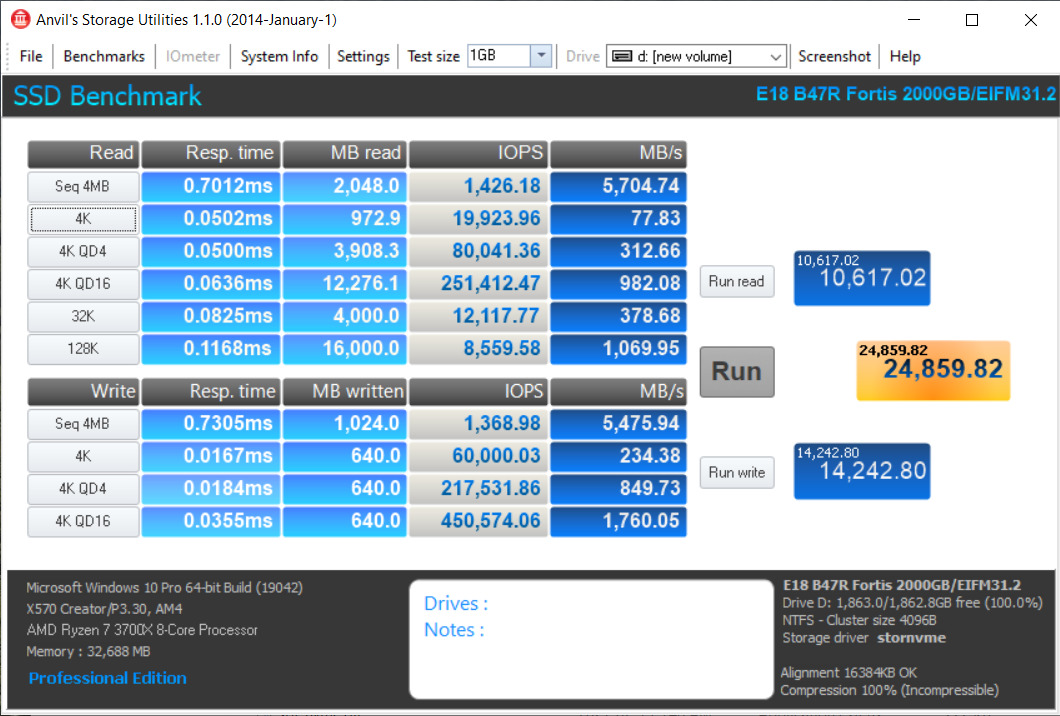ANVIL STORAGE UTILITIES PROFESSIONAL
Anvil’s Storage Utilities (ASU) are the most complete test bed available for the solid state drive today. The benchmark displays test results for, not only throughput but also, IOPS and Disk Access Times. Not only does it have a preset SSD benchmark, but also, it has included such things as endurance testing and threaded I/O read, write and mixed tests, all of which are very simple to understand and use in our benchmark testing.
AMD X570 TEST BENCH
INTEL Z590 TEST BENCH
The AMD result is amongst the highest result we have ever received in Anvil, however, the Intel result is the highest number achieved to date…29,164 points.
AJA VIDEO SYSTEM DISK TEST
The AJA Video Systems Disk Test is relatively new to our testing and tests the transfer speed of video files with different resolutions and Codec.
AMD X570 TEST BENCH
INTEL Z590 TEST BENCH
TxBench is one of our newly discovered benchmarks that we works much the same as Crystal Diskmark, but with several other features. Advanced load benchmarking can be configured, as well as full drive information and data erasing via secure erase, enhanced secure erase, TRIM and overwriting. Simply click on the title for a free copy.
AMD X570 TEST BENCH
INTEL Z590 TEST BENCH
 The SSD Review The Worlds Dedicated SSD Education and Review Resource |
The SSD Review The Worlds Dedicated SSD Education and Review Resource | 


Any hints on what endurance rating we can expect? (TBW for 2TB model)
Can’t speak for the TBW – that is, warrantied writes – but the endurance on this flash should be quite good. Possibly in the 5K P/E range.
Thanks for jumping in NewMaxx…welcome anytime.
Les, would really like to see you guys adding a detailed thermal performance test for nvme drives. Thanks and keep up the good work.
Abdulaziz.
Pls pls pls, run one of these benchmarks with such modern PCIe 4 drive on “old” PCIe 3.
PCIe 3 should not tamper with those 4K random low QD speeds (but only with the sequential high QD ones) and, if that’s the case, maybe it’s time to consider such PCIe 4 drive for my PCIe 3 laptop. Really, this kind of modern drive is 2.5x faster than good PCIe 3 ones where it matters most.
I’m sorry but why is a site that is solely focused around testing SSDs not including ANY figures or testing regarding power management?
Anandtech does, and their site isn’t focused solely on SSDs